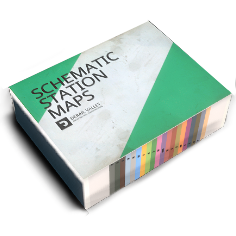Breakers: Difference between revisions
Appearance
m Tweaks |
m Link fix |
||
| Line 11: | Line 11: | ||
<!--T:4--> | <!--T:4--> | ||
<b>Traction Motors (TM)</b> - This breaker enables {{pll|Traction Motors|traction motors}} on vehicles with | <b>Traction Motors (TM)</b> - This breaker enables {{pll|Traction Motors|traction motors}} on vehicles with {{pll|Electric Powersource|electric powertrains}}. In case of {{pll|Powertrain Overheating|overheating}}, traction motors can trip the breaker, which then needs to be manually re-enabled. | ||
</translate> | </translate> | ||
[[Category:Accessories|2]] | [[Category:Accessories|2]] | ||
Latest revision as of 22:51, 3 April 2025
Breakers are switches that isolate and protect separate electrical systems on motorized rail vehicles. Breakers are typically present on post-steam era rolling stock, and allow the electrical systems to be toggled on and off, individually. There are a few types of electrical systems:
Starter - This breaker enables ignition of internal combustion engines.
Electrics - This breaker enables accessories that run on electricity, such as compressors, lights and wipers. On steam locomotives, the equivalent of this breaker is the dynamo valve.
Traction Motors (TM) - This breaker enables traction motors on vehicles with electric powertrains. In case of overheating, traction motors can trip the breaker, which then needs to be manually re-enabled.
